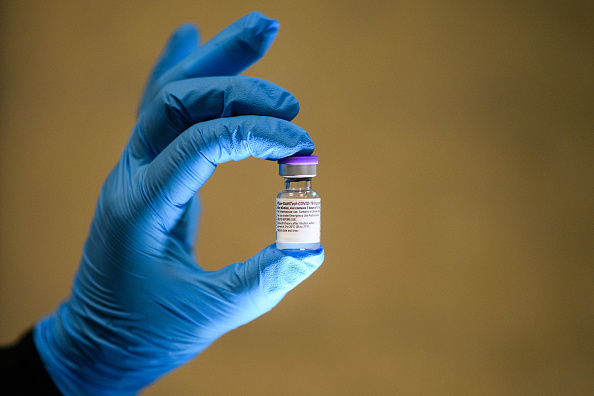Moderna and Pfizer plan to charge more than $130 for their COVID-19 shots, a big price jump from the government rate of $26.36, The Wall Street Journal reported on January 9.
Big Pharma is seeking to profit from the pandemic, said Lauren Aronson, executive director of The Campaign for Sustainable Rx Pricing, in a news release.
“Moderna’s decision to hike the price of the company’s COVID-19 vaccine by nearly 500 percent as payment shifts to the private market is a brazen demonstration of Big Pharma’s greed,” said Aronson. “Moderna is just the latest of several Big Pharma companies seeking to price-gouge COVID-19 treatments and vaccines as payment for these critical medications transitions from the federal government to the private market.”
The cost of producing the coronavirus vaccines ranges from 54 cents to 98 cents a dose, estimate by Donald W. Light and Joel Lexchin in an article published by the Journal of the Royal Society of Medicine.
The authors say manufacturers’ actual costs are generally a closely guarded secret that the U.S. government and medical groups have been uninterested in determining. In addition, vaccine manufacturers have been shielded from legal liability by federal law.
Government Subsidized, Set Prices
The federal government subsidized vaccine development and set the prices, says Gregg Girvan, health care policy researcher at Foundation for Research on Equal Opportunity (FREOPP).
“The government set the price for the vaccines in negotiating what it would pay,” said Girvan. “One could rightly argue that because they funded the development of the vaccines, they were entitled to set the price.”
Government health programs are the largest drug buyers in the United States, but usually don’t negotiate prices, says Girvan.
“Medicare and Medicaid are required to cover virtually any drug approved by the FDA, regardless of the price set by manufacturers. The list goes on with the ways the system is tilted in favor of drug companies setting their own price,” said Girvan.
Price of Innovation?
A broader cost issue than COVID-19 shots is pharmaceutical companies raising prices on popular drugs, says Girvan.
“The biggest driver of high drug spending in the U.S. is drug companies raising prices on existing products,” said Girvan. “We have seen this with drug products from the COVID vaccines to Humira—the best-selling drug of all time—to Lipitor. They do this because they can. In other words, flawed government policy, particularly for biologic drugs, allows companies to exploit their monopoly position to charge higher prices,” said Girvan.
“We have a patent system that rewards drug companies for filing frivolous patents to extend drug monopolies far longer than intended by the law,” said Girvan. “The FDA (Food and Drug Administration) grants marketing exclusivity to biologics for 12 years because the industry successfully lobbied for it in the Biologics Price Competition and Innovation Act—which, not so ironically, was enacted as part of the Affordable Care Act.”
Drug companies claim the prices they charge are necessary to fund development of new drugs, but there are alternatives, says Girvan.
“Our research shows that we can achieve cost savings through reforms … without substantially harming future innovation and drug development,” said Girvan. “The result is a drug industry that focuses on truly innovative medicines while making our health care system more fiscally sustainable for generations to come.”
Third-Party Payer Problem
The lack of price competition in the drug market is due to government involvement, says Michael Cannon, director of health policy studies at the Cato Institute.
“The reason pharma is able to charge such outrageously high prices is that the government has intervened in the health sector in ways that defeat any price competition or other discipline the market would impose on such practices,” said Cannon. “The government purchases half of all health care in the United States. Employers purchase another quarter or more. Consumers are therefore not price-conscious. Pharma knows it, so they charge outrageously high prices, and they keep getting away with it.”
Eliminating private and public third-party payers in medicine would allow consumers to compare prices and bring down costs, says Cannon.
“If you want to bring those prices down, give consumers/workers the money that government and employers now control,” said Cannon. “The industry would howl because prices would plummet, bringing health care within reach of those who currently cannot afford it.”
Kevin Stone (kevin.s.stone@gmail.com) writes from Arlington, Texas.





















